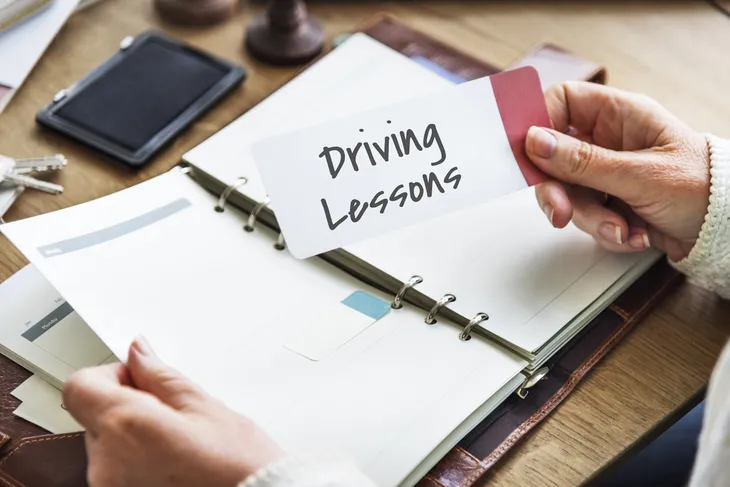Everyone needs to practice safe driving, but some drivers face their own set of challenges. For example, inexperienced drivers—who, in most cases, are also young drivers—may need extra training in order to properly prepare for the challenges of life behind the wheel.
Older Driver Safety Awareness Week occurs in December. This event looks at older drivers and their unique driving safety challenges. Although everyone ages differently, generally speaking people in their golden years face problems others don’t, such as slowing reflexes, hindered hearing, chronic health conditions, and worsening eyesight. However, there are a number of ways to help overcome these issues…
Want senior content delivered straight to your inbox? Sign up for our exclusive email list and receive articles and news on diet & nutrition, fitness, and mental health dedicated specifically to our senior audience!
Stay in Shape
Rarely do we make the connection between physical exercise and driving an automobile, but there are some serious advantages to staying physically fit when it comes to getting behind the wheel. For one, being physically active can help increase alertness, making it easier to respond quickly to sudden actions on the road, such as having a pedestrian run into the street or having another drive swerve into your lane.
Additionally, physical activity can help build strength and flexibility, helping a driver make the kinds of movements they need to make in order to stay safe, such as bending to check blind spots and steering the wheel hard in an emergency. (Check out this list on Easy Exercises for Seniors and At Home Exercises for Seniors).
Keep The Mind Sharp
Mental alertness is one of the most important factors in remaining safe behind the wheel. For older drivers, and particularly for those with conditions that affect the brain (such as Alzheimer’s Disease), that can be a problem.
There are certain activities that can help older people keep the mind sharp, however. For one, staying physically active and physically fit can help improve alertness. In addition, certain mental tasks, such as reading, completing puzzles, even playing some video games, can help keep the mind sharp.
Check Your Hearing Regularly
Younger drivers often find themselves in trouble on the road because they listen to their music too loud. Older drivers, meanwhile, may put themselves and their passengers in danger by failing to monitor their hearing. (Get informed on the Early Signs of Hearing Loss).
Being able to hear everything going on around you is a critical part of safely driving a vehicle. Imagine, for instance, that an emergency vehicle approaches from behind, but you can’t hear it and fail to pull over. The results could be disastrous. That’s why it’s so crucial for all older drivers to have their hearing checked regularly and, if a problem is found, take steps to accommodate the issue.
Monitor Your Eyesight
Just as hearing everything around you is important to driving safely, being able to see clearly is crucial. That’s the case on a bright, clear day. Now imagine how important clear eyesight becomes when the weather turns and a storm rolls in. When getting behind the wheel in inclement weather—from a snow blizzard to heavy rain to fog—it’s critical that the driver be able to see everything they need to see.
That’s why any driver (young, middle-aged, or older) should have their eyes checked on a regular basis. That means making an appointment with an optometrist at least once each year and updating your eyeglasses or contact lenses based on their findings. (Learn more about the Most Common Eye Problems).
Consult Your Doctor
Chances are your doctor isn’t a driving expert, but they’ll have a pretty good idea of what health conditions would affect an individual’s ability to drive safely. Some health conditions, such as dementia, diabetes or anything that results in seizures, may make driving at any time a bad idea.
If a condition is more manageable and driving is possible, your doctor will have a good idea of when it’s most and least safe to get behind the wheel. For example, it may be less safe to pilot a vehicle after taking certain types of medication. Consider that many drugs designed to treat pain or sleep can cause drowsiness and make any type of driving—let alone driving in inclement weather conditions—dangerous.
Evaluate Your Vehicle
When it comes to safety, not all vehicles are the same. Many newer vehicles are equipped with safety technologies— such as airbags and activity sensors—designed to prevent accidents and protect drivers and passengers in the event an accident occurs. In addition, some vehicles, such as rear-wheel drive muscle cars, struggle more in inclement weather, like snow. And that’s not all: some vehicles have better lines of sight, giving the driver a better view of what’s in front of them, off to the side, and behind them.
Of course, everyone will have their own, unique preferences when it comes to buying and driving a vehicle. Someone who has been driving powerful rear-wheel drive muscle cars their entire lives may feel less safe in a front-wheel drive minivan. Still, as drivers age it’s important they carefully evaluate the safety of their vehicle and how changes in their physical and mental states affect their driving.
Carefully Plan Your Driving Times and Routes
There are several factors that can make driving more difficult—these include nighttime driving, driving during inclement weather, driving during rush hour (morning or afternoon), and driving when there’s a major event (such as a sports game or concert) going on in the immediate area.
Older drivers who are beginning to feel concerned about their driving abilities may want to avoid getting behind the wheel if they’re going to encounter any of these issues. Additionally, they should consider planning a route that takes them away from inclement weather or busy driving conditions. In the end, thinking ahead could help keep you and your passengers safe.
Expand Your Knowledge
Driving rules and conditions change over time. Imagine driving in a busy city like New York, Los Angeles or Toronto 30 or 40 years ago—then think about driving in those cities today. Chances are things have changed a lot—from the rules of the road to typical driver behavior.
Although older drivers tend to have more experience behind the wheel, they may have a hard time keeping up with changes to driving rules and driver behaviors. An older driver can better prepare themselves for getting behind the wheel by enrolling in courses designed to improve driver safety and deepen drivers’ knowledge of the rules of the road.











